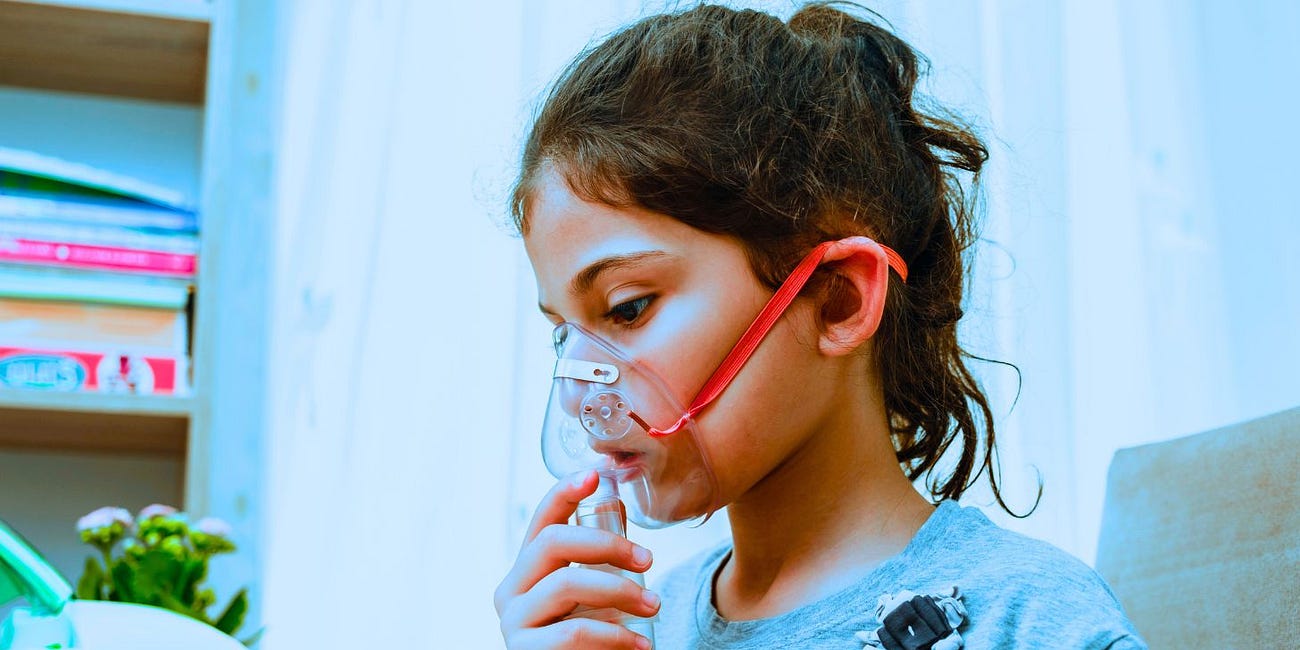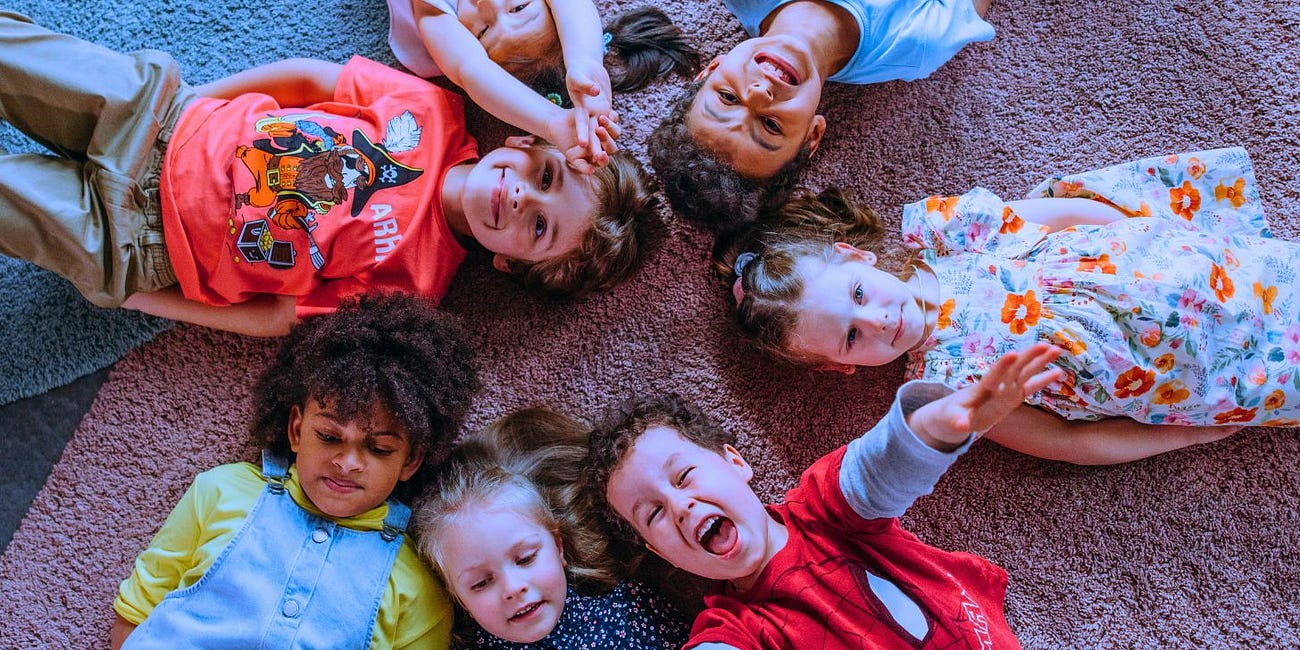Pandemic Lockdowns Cause Abnormal Emotion, Behavior, Sleep, Eating Habits, Academic Performance in Children: Journal 'Cureus'
Nearly 7 in 10 parents saw disruptions in their children's academic performance.
A new study published Tuesday in the peer-reviewed journal Cureus confirms poor health and academic outcomes in children result from pandemic lockdown measures.
Follow Jon Fleetwood: Instagram @realjonfleetwood / Twitter @JonMFleetwood / Facebook @realjonfleetwood
The findings raise questions about the necessity and toll of government-mandated pandemic measures.
The study points out how the COVID-19 pandemic “tremendously disrupted societal behaviors and norms.”
“People had to cope with new situations, including restrictions on free movement, home confinement, and school closures, among others,” the study authors write. “With less scope for physical classes, online classes became rampantly common during and after the pandemic.”
The researchers lament how a virtual learning platform many were forced to use during the pandemic “cannot replace the societal learning and preparation of children that normally occurs in school settings.”
The pandemic therefore waged “a multifaceted impact on children, disrupting their routine work, social life, and mental health.”
The study authors pointed to “stringent public health measures” implemented during the pandemic as the cause of these problems.
These measures included “complete lockdowns, school closures, and movement restrictions.”
“A change in daily routines, such as going to school, has been shown in several studies to potentially deprive children of their ability to develop social skills and emotional resilience,” the authors write.
“Furthermore, unhealthy lifestyle practices such as reduced physical activity and increased screen time can adversely influence mental well-being.”
These changes led to an “increase in anxiety, depression, insomnia, and other emotional difficulties among children due to lack of social life and disrupted education.”
Since the circumstances were “bound to interfere with their emotional well-being, with long-term consequences,” the authors contend it is “imperative to screen for the effects of the pandemic situation among children for timely action.”
Follow Jon Fleetwood: Instagram @realjonfleetwood / Twitter @JonMFleetwood / Facebook @realjonfleetwood
They performed a cross-sectional survey carried out in both rural and urban areas of Puducherry, India, between February and April 2022.
Caregivers of 621 children aged 6-17 years were interviewed in person, and sociodemographic, personal, and behavioral details were collected.
The ‘Strengths and Difficulties Questionnaire-25’ (SDQ-25) parent (caregiver) survey was used to evaluate emotional and behavioral difficulties during the pandemic.
The study found 101 (16.3%) children aged 6-17 years were likely to have emotional and behavioral difficulties according to the SDQ scores.
Abnormal externalizing, internalizing, and prosocial scores were documented among 160 (25.8%), 258 (41.5%), and 285 (45.9%) children, respectively.
Caregivers reported disruptions in their children’s academic performance (426, 68.6%), sleeping patterns (269, 43.3%), and eating habits (256, 41.2%).
The use of digital devices for noneducational purposes was reported among 97 (35.9%) children.
Abnormal scores were more common among children of younger caregivers (18-45 years), children who used digital devices for >2 hours per day, children who experienced any death due to COVID-19 in their family, and caregivers who perceived that the psychological changes in their children were due to the pandemic.
Significantly, physical activity for more than two hours per day reduced the risk of emotional and behavioral difficulties in children by 60%.
The authors conclude by emphasizing the need for initiatives promoting mental well-being and preventive screening for vulnerable populations.
“This research underscores the potential ramifications of the pandemic on the mental well-being and lifestyle of children,” they write. “Implementing initiatives that promote positive mental health and conducting preventive screening for vulnerable populations, such as children, are considered essential, anticipating the challenges posed by such unprecedented pandemic circumstances in the future.”
You can read the full study below:
Follow Jon Fleetwood: Instagram @realjonfleetwood / Twitter @JonMFleetwood / Facebook @realjonfleetwood
More Than 4 in 10 Children Experience Anxiety, Depression from Mandated Pandemic Lockdowns, School Closures: Journal 'Cureus'
A new study published Monday in the peer-reviewed journal Cureus confirms the mandated closure of schools during the COVID-19 pandemic was detrimental to the psychosocial well-being of school children in eastern India. Follow Jon Fleetwood: Instagram @realjonfleetwood
More Vaccinations Means 'Exponentially' More Disease in Infants: 'International Journal of Vaccine Theory, Practice, and Research'
A new study published Wednesday in the peer-reviewed International Journal of Vaccine Theory, Practice, and Research confirms infants who receive more vaccinations have “exponentially” more diseases. Follow Jon Fleetwood: Instagram @realjonfleetwood /
Children Who Receive COVID-19 Jab Nearly Twice as Likely to Develop Asthma: Journal 'Infection'
A new study published Friday in the peer-reviewed scientific journal Infection confirms that children who receive COVID-19 shots are significantly more likely to develop asthma than children not receiving the jabs. Follow Jon Fleetwood: Instagram @realjonfleetwood
'Current Body of Scientific Data Does Not Support Masking Children for Protection Against COVID-19': British Medical Journal
A new peer-reviewed examination of 597 studies has confirmed that the effectiveness of making children wear masks in order to prevent COVID-19 “transmission or infection” has not been “demonstrated with high-quality” evidence. “Real-world effectiveness of child mask mandates against SARS-CoV-2 transmission or infection has not been demonstrated with high…
Heart Disease Occurs 'Only in the Vaccinated Groups' in Children: Oxford/Harvard COVID Jab Study
A study published this month online ahead of print in medRxiv shows cases of myocarditis and pericarditis only occurred among children injected with the COVID-19 jab, not among the unvaccinated.
Natural Infection Provides More Diverse Antibody Protection Than COVID-19 Injections: Harvard, Boston Children's, Massachusetts General, Brigham and Women's Hospitals
A study published online last month ahead of print in BioRxiv confirms natural SARS-CoV-2 infection supplies the body with more antibodies than COVID-19 mRNA jabs in children under 5 years of age.
Natural Infection Provides Superior Immune Protection Compared to COVID Jab: Journal 'Frontiers in Cellular and Infection Microbiology'
A study published last month in Frontiers in Cellular and Infection Microbiology confirms that natural SARS-CoV-2 infection confers a more potent mucosal immunity following infection compared to vaccination with the Pfizer/BioNTech mRNA COVID-19 jab in children.
COVID Vaccine Doesn't Decrease Contagious Period for Children: 'JAMA Pediatrics'
Researchers from Stanford University and the University of Southern California (USC) examined the duration of time both vaccinated and unvaccinated children infected with the coronavirus Omicron variant could spread the disease to others.
Youth ER Visits, Hospitalizations for 'Chest Pain' Double After Vaccination: Peer-Reviewed Publication in 'Translational Pediatrics'
A November publication in the peer-reviewed journal Translational Pediatrics looked at the link between mRNA COVID-19 vaccination and heart diseases like pericarditis and myocarditis in adolescents aged 12 to 18 years. Pericarditis is inflammation of the pericardium, the sac-like tissue layer that surrounds the heart. Myocarditis is inflammation of the m…















